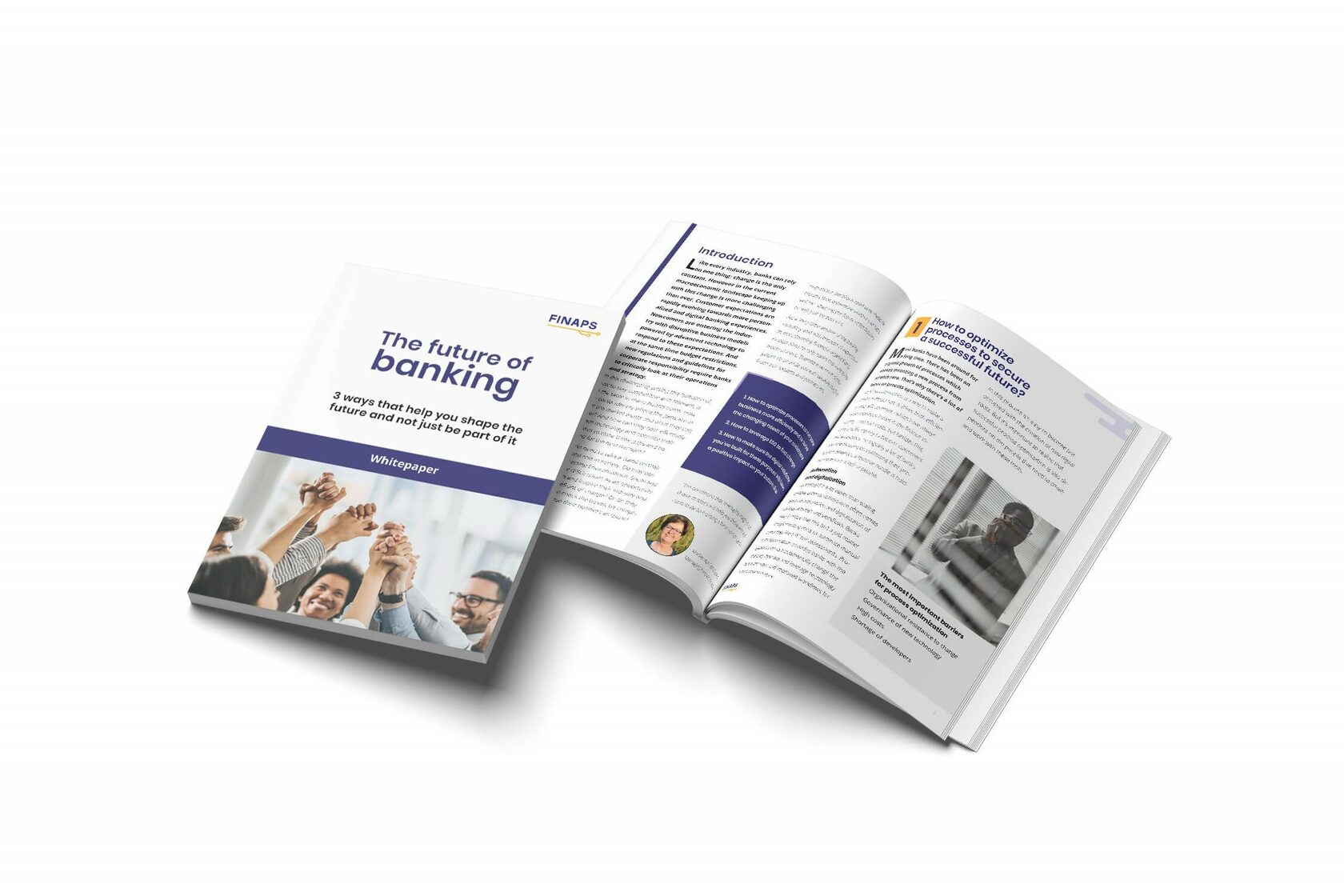
The opportunities and challenges for Rabobank in the transition to ‘the Future of Banking’
Banks play an important role in the major transitions of our society, such as the promotion of sustainable investments. To facilitate this transition, banks are rapidly digitizing towards data-driven services. Kenza Claessens, area lead credit and engagement wholesale & rural at Rabobank, sees the opportunities and challenges that digitization brings to Rabobank.
According to Claessens, the role of banks has changed significantly since the credit crisis: “Since 2008, all banks have been under a magnifying glass, and working for a bank was not something to be proud of. However, behind the scenes, and still today, there is a lot of hard work being done to contribute positively to important societal themes. For example, we are pioneers in the energy transition and nitrogen problem.
This requires new processes, and such a transition is enormously complex and requires carefulness, while the pressure to comply with increasingly strict regulations from the Netherlands and the EU is increasing. We are making great strides in this, although society sometimes demands that we go even faster.”

Standards needed for good data use
The reporting required for ESG and KYC processes, among others, means that Rabobank’s demand for information about its customers is growing rapidly, with customers now receiving not 20 but 100 questions during intake. “However, the challenge is not only the large amount of data,” Claessens emphasizes. “At large organizations such as Rabobank, there are many different branches, which deal with different customers nationally and internationally. The areas of focus are different for each branch, so the information they ask for and need varies greatly. In addition, all those branches have many different means of gathering data, so good standards for data use are essential to make that information widely available and reusable within the bank.”
“The main change required to comply with ESG guidelines is, in our view, with the customer. We want to play a facilitating role by staying in touch with them and supporting them with insights,”
Internal coordination crucial for successful process optimisation
The increase in the amount of data Rabobank requests and generates is accompanied by a rise in the number of digital processes. This also increases the importance of process optimization. According to Claessens, this is closely linked: “New information requires new structures and processes. With the use of digitization, we ensure that traditional bank processes, such as mortgage applications, take place online and automated to a large extent. However, the impact of customer-oriented changes on our internal processes should not be underestimated. Successful process optimization requires commitment and involvement of internal stakeholders.”
“The order is very important in this regard. When the internal processes at the back end are not in order, the front end cannot be started. At Rabobank, they therefore work in a tribe structure, where domain experts form a team together with the IT department. This is necessary to make a good assessment of the value of optimization for the organization on the one hand, and the amount of work and impact on the other. First, they work on the process, then it is tested with the domain experts, and finally it is brought to the customer.
Choosing the right implementation partner
One of the most important conditions to tackle these challenges is the choice for a good implementation partner. According to Claessens: “These projects require a partner with a long-term vision, combined with the drive to successfully complete complex tasks. It is important that they take responsibility and do not walk away when difficult decisions need to be made.”
Building the bank of the future
Although many banks outsource such projects to foreign countries, Claessens believes in shorter lines of communication and direct collaboration: “The implementation partner really becomes part of our team. In my opinion, this is essential for good and successful collaboration. By knowing each other, being able to easily consult and understanding well what is needed from each other, we can achieve better results. In our collaboration with Finaps, for example, you feel the energy and trust that are needed to take the next steps together in a solid way. This way, we can continue to build the bank of the future together.”

Want to learn more about how to implement and measure your ESG progress?
Download our whitepaper on the future of Banking to get more in-depth knowledge about how to leverage ESG as fuel for change, optimize your processes and limit the TCO in your digitalization journey. Or contact us to find out how we can implement and measure the progress of the ESG initiatives in your organization


